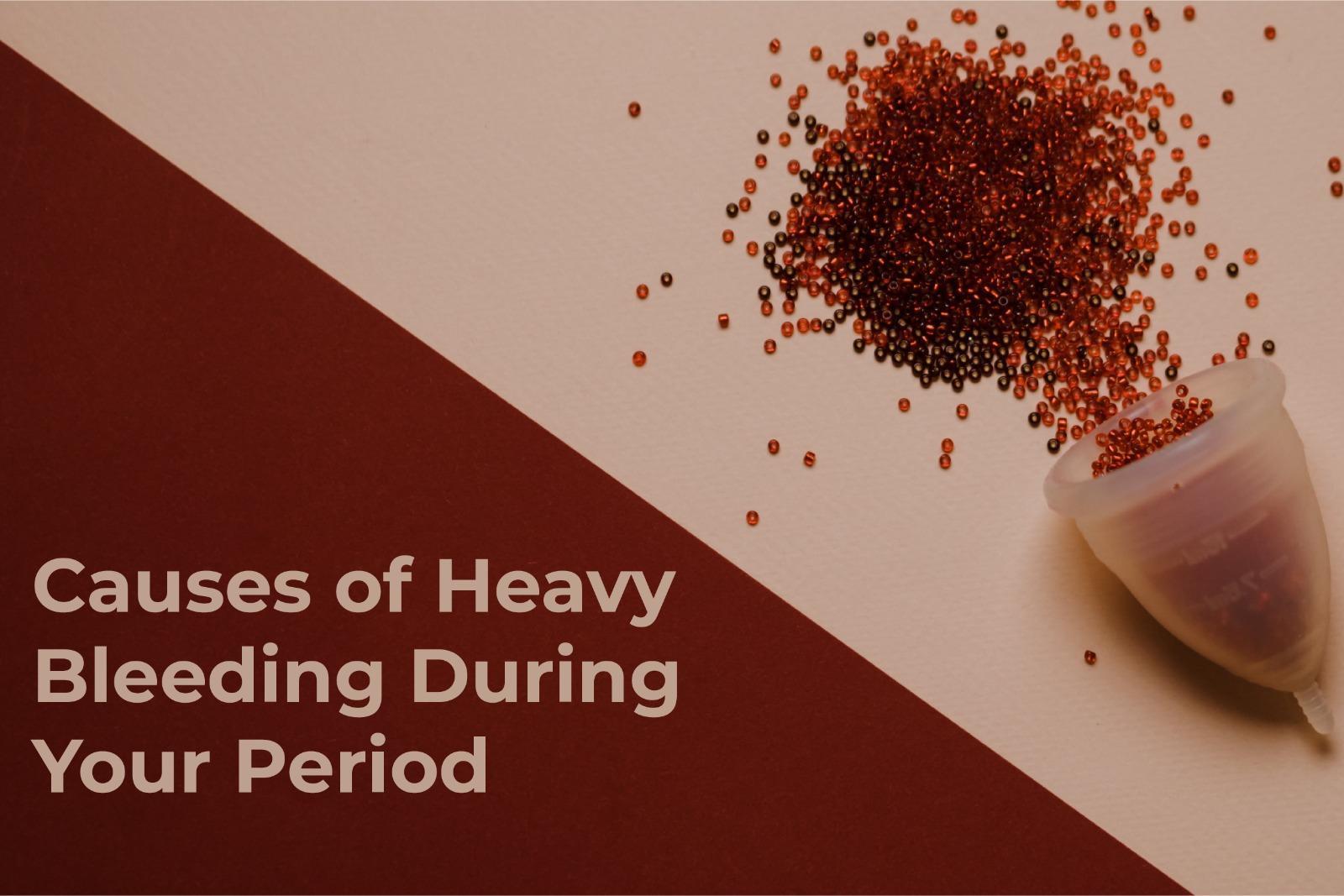Some women have Heavy Bleeding During Your Period that is heavy or lasts for more than a few days. This condition used to be called menorrhagia. Menorrhagia is menstrual bleeding that lasts more than 7 days. But most women don’t have enough blood loss for it to be called heavy menstrual bleeding.
Some women have menstrual bleeding between periods, or earlier or later in their cycles than expected. This type of bleeding is called abnormal uterine bleeding or irregular menstrual bleeding.
Heavy menstrual bleeding, blood flow, and cramping make it harder to do your usual activities. If you dread your period because you have heavy menstrual bleeding, talk with your doctor. Many treatments can help.
Symptoms
Symptoms of heavy menstrual bleeding may include:
- Soaking through one or more sanitary pads or tampons every hour for several hours in a row.
- Needing double sanitary protection to control your menstrual flow.
- Getting up at night to change sanitary pads or tampons.
- Bleeding for more than a week.
- Passing blood clots larger than a quarter.
- Limiting daily activities due to heavy menstrual flow.
- Feeling tired, fatigued, or short of breath as a result of blood loss.
Some potential causes of Heavy Bleeding During Your Period include:
- Hormonal Imbalance:
- Fluctuations in hormonal levels, particularly estrogen and progesterone, can affect the regularity and intensity of menstrual bleeding.
- Uterine Fibroids:
- Noncancerous growths in the uterus, known as fibroids, can cause heavier menstrual bleeding. Fibroids can vary in size and location within the uterine wall.
- Polyps:
- Uterine polyps are growths attached to the inner lining of the uterus that may cause heavier or prolonged menstrual bleeding.
- Endometriosis:
- This condition occurs when the tissue lining the uterus (endometrium) grows outside the uterus. It can lead to heavy bleeding, pain, and other menstrual irregularities.
- Adenomyosis:
- Adenomyosis is a condition where the tissue lining the uterus (endometrium) grows into the muscular walls of the uterus. This can result in heavier menstrual bleeding and increased menstrual cramps.
- Pelvic Inflammatory Disease (PID):
- Infections of the reproductive organs, such as PID, can lead to inflammation and scarring, potentially causing heavier menstrual bleeding.
- Use of Blood Thinners:
- Certain medications, such as anticoagulants or blood thinners, can increase menstrual bleeding.
- Intrauterine Device (IUD):
- While some women experience lighter periods with an IUD, others may experience heavier bleeding as a side effect.
- Pregnancy Complications:
- Miscarriage or ectopic pregnancy can cause heavy bleeding, often accompanied by other symptoms like abdominal pain.
- Bleeding Disorders:
- Conditions like von Willebrand disease or platelet function disorders can affect blood clotting and contribute to heavy menstrual bleeding.
- Thyroid Disorders:
- Imbalances in thyroid hormones can impact menstrual cycles and cause heavy bleeding.
- Certain Medications:
- Some medications, such as steroids or certain antipsychotics, may contribute to Heavy Bleeding During Your Period.
If you are experiencing consistently heavy periods, it’s crucial to consult with a healthcare provider. They can conduct a thorough evaluation, including medical history, physical examination, and possibly diagnostic tests, to determine the underlying cause and recommend appropriate treatment options.


